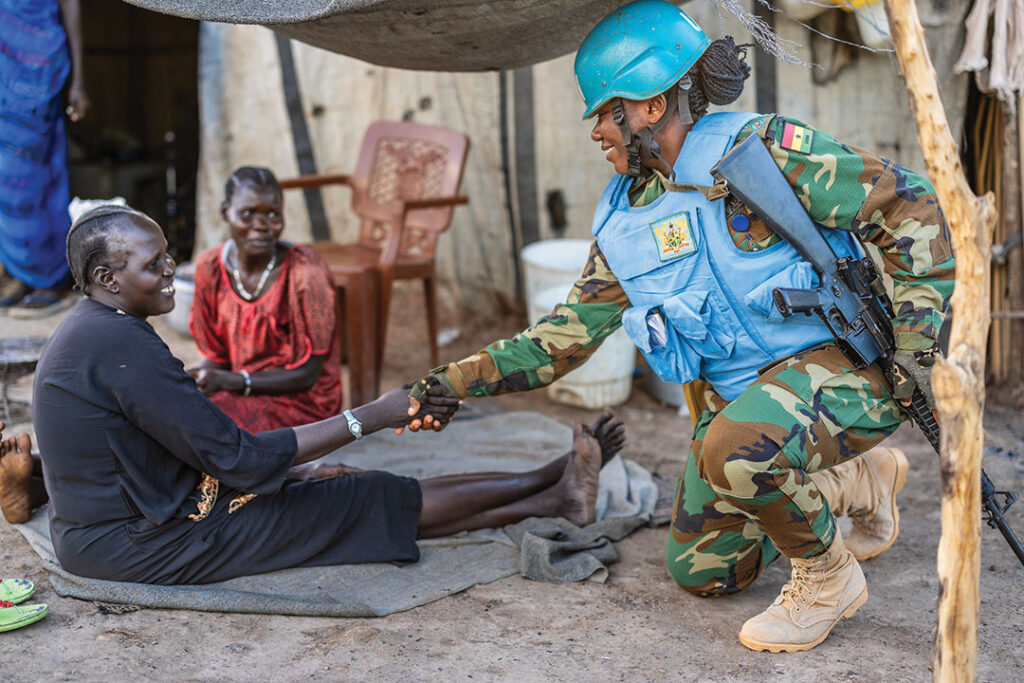UNITED NATIONS
For more than a year, a group of United Nations peacekeepers from Ghana led by Capt. Esinam Baah regularly patrolled the “blue line,” or the demarcation line between Lebanon and Israel. They visited neighborhoods in the area, checking in with families to make sure they were safe.
In 2022, Baah was one of the 173 Ghanaian female peacekeepers who served in the U.N. Interim Mission in Lebanon. She also was one of the 6,200 uniformed female peacekeepers — military and police personnel — serving in the world’s 12 peacekeeping missions. These women often are seen as a beacon of hope and protection for millions of civilians, many of them women and girls, who are struggling to keep safe while helping to rebuild their lives and communities after conflict.
“There are some in the town who are not very comfortable with an unknown man talking to their females so, because I am a woman, I am able to approach any female, in any town, because they see me as a woman and I am not a threat,” Baah said.
Gender parity in peacekeeping, especially among its leaders and uniformed personnel, has long been a priority for the U.N. The organization, which depends on its member countries to provide military and police contingents, has launched several initiatives over the years, including urging and incentivizing troop- and police-contributing countries to deploy more women.
Over the years, the missions have made progress. Between 1957 and 1989, there were only 20 uniformed women in peacekeeping. As of September 2023, there were 6,200. Still, that is less than 10% of the more than 70,000 uniformed peacekeepers deployed.
More than half of these women are from Africa. Among the 120 countries that contribute troops and police, Egypt, Ethiopia, Ghana, Rwanda, Senegal, South Africa and Zambia are some of Africa’s largest contributors of uniformed women today.
“Together, with all the other women pioneers, we have a responsibility to carry the torch and break down the gender stereotypes, prejudices and barriers against women in the field of corrections and security,” said Téné Maïmouna Zoungrana, a corrections officer from Burkina Faso who served in the U.N. peacekeeping mission in the Central African Republic.
Zoungrana was awarded the first U.N. Trailblazer Award for Women Justice and Corrections Officers in 2022 for her work creating an all-female rapid-intervention team and recruiting and training local prison officers.

